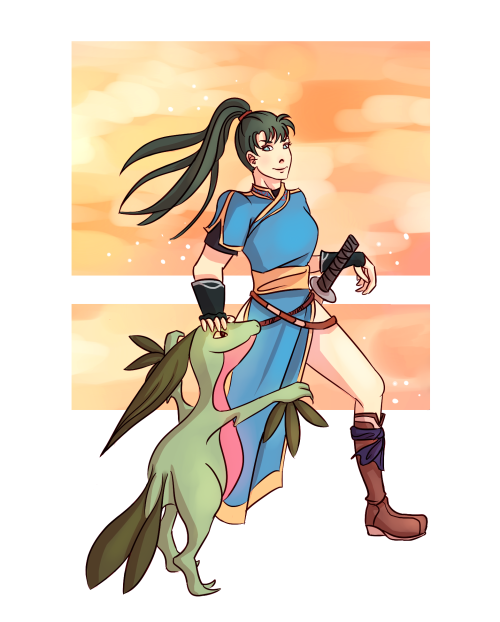sanja kohlberg-michelson | d6 | fin
Sept 2, 2018 2:19:40 GMT -5
Post by Lyn𝛿is on Sept 2, 2018 2:19:40 GMT -5
sanja kohlberg-michelson
fourteen
district six
female
♫
fourteen
district six
female
♫
Guilt and stress have served to age Bridgit Michelson far more than her thirty-six years.
No matter how hard she works, Bridgit thinks, there will always be those she can't save. The ones dragged in from the streets, shallow breaths and ashen skin - she knows the signs of morphling overdose by heart now, knows the desperate wishing for there still to remain antidote in stock, knows the sinking feeling in her stomach each time they're too late.
Harder still to bear - if Bridgit would admit to such a thing; she'd watched too many tragedies unfold, to believe she could take each case before her and judge if any could be considered 'sadder' than another - is watching infection race through her patients' veins. Sepsis was a slow and agonizing way to die, she'd seen that when she was ten - and her sister's death plays out again in so many of them, as their organs succumb one by one until all that's left of them are a grieving family and a little box on their chart where she must cross out 'Alive' and fill in 'Deceased' instead.
She wonders if she's become numb to it all, to life and death being as routine to her as paperwork. The familiar patterns, the instincts she's developed over the years, carry her through most of her shift -
But then there were the mistakes. She stocks the pharmacy, prepares ten different IV bags for ten different patients, sends down a fresh bottle of potassium chloride at Dr. Khiev's request; it is these thousands of tiny automatic actions, most too trivial to remember, that keep the hospital running. When they go wrong - and for every time someone was hurt or killed, there must have been dozens of other mistakes, that went unnoticed only by luck - she racks her brain, thoughts spiraling, trying to recall if she had been part of the chain; is it her fault, she fears, even if there were many others who could have caught the error, before it cost someone's life.
So often she sees everyone at their worst, after all - the patients, the doctors, even herself on the darkest days when her own suffering becomes nearly unbearable. And when people ask if she's happy with her job, if she ever wishes she could be something more than just a nurse, so low in their hierarchy -
No, I'm not happy, she wants to snap at them. But my happiness doesn't matter. Not when she sees so many of the dying, in the district. And no, she doesn't want to be something more - as if that word meant anything to her, like they thought it should - and she wants to tell them, in the ivory towers, at least I'm doing something real.
Instead she only listens, and smiles, and turns away.
---
First, do no harm.
Her words are soft, her hands gentle - Sanja has never known her mother's hands to be anything but gentle. She'd like to be as patient and loving as her one day; her own fingers are clumsy, with none of that practiced grace, but little by little, she's getting there.
Why 'do no harm'? she'd asked her mother once. Why not 'do good', or something firmer, and anyways, what if you have to choose between harming one person, or harming another -
And her mother had smiled, and said how like her aunt she was, always looking to find the right answer to the questions of life. But there are times when there is no easy solution, and far more important is to care and comfort first, in the meantime.
Do no harm was an exhortation to humility, then, Sanja understood - to keep her feet firmly planted on the ground, and maintain that steady foundation before seeking to fly into the sun. To not get so caught up in trying as to neglect the no less crucial mundane tasks, until they became an entire tower of circumstances waiting to collapse.
Those four simple words whispered to her to be thoughtful, too, and mindful - that there were consequences to all she did; that it mattered not what her intentions were, if her carelessness would cause another to come to harm. That she should turn within, and look to the voice of her conscience to guide her when she was unsure; and the difficult decisions will be easier for it, as long as she pays attention, and quiets her inner self enough to hear that voice.
She will never be filled with the same heated passion that stirs the hearts of activists, or the flitting fancies of scientists racing to new heights. Whether they are right, or whether they are wrong - Sanja remains where she is, feet planted on the ground like her mother, reaching out a helping hand.
That's the second part of the oath - that it didn't matter who they are, or what they had done; there will always be empathy in her heart to those who need it.































































